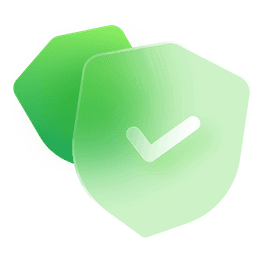In this article, we explain the general security measures as privacy and security that must be followed in browsers such as Microsoft Edge, Mozilla Firefox, Opera, Safari and Google Chrome browsers.
There are two types of tips.
Privacy tips are settings that help you hide your footprints on the internet and ensure that no more information is obtained from you more than needed. Many websites on the Internet contain codes intended to track visitors' movements. Measures to prevent these are explained under the "privacy" label.
Security tips are security settings that protect you and your browser from potentially harmful codes on the sites you visit. When these settings are missing, you may be exposed to some attacks such as malware and phishing. Preventive measures against cyber attacks are explained under the "security" tag.
1. [Security] Apply Regular Browser Updates
Updates are constantly released in browsers, some of which are feature improvements while others are security patches. Security updates protect your browser against the latest attack techniques. These security patches must be applied quickly.
If security updates are not applied, your browser will remain unprotected against current malicious codes found on sites.
Modern browsers have the "Enable Auto Updates" option, which does not require any extra effort, so always keep this feature active.
2. [Privacy] Use of HTTPS
When visiting websites with your browser, choosing sites that support the HTTPS protocol will ensure your data is safe.
Sites with HTTPS feature apply to root certificate holders within a trust relationship and become certificate holders if deemed appropriate. To avoid sites that do not provide Secure Connection, enable the "Always use secure connections" feature in your browser. Thus, your browser will warn you when accessing sites that do not support secure connections.
Otherwise your traffic to these sites will be unencrypted and can be monitored by intermediate nodes.
3. [Privacy] Manage Cookies and Site Data
Websites you access with your browser leave identifying information called "cookies" on your browser. This helps the sites you subscribe to recognize you for a certain period of time, but many websites use this feature to track user movements.
Tracking your movements by the sites you visit and the advertising owners of these sites makes your internet movements visible.
You can see the cookies stored in your browser's "Privacy and Security" settings. Clearing this information periodically will both speed up your browser and ensure privacy. Also, enable the "Block third-party cookies" option in the cookie settings, so that only the sites you visit can leave cookies, and the owners of the advertisements on the site cannot add cookies.
4. [Privacy] Enable Do Not Track
With this feature, your browser sends a clear message to the site owner, informing them that you do not want to be tracked. Although not all site owners pay attention to these messages, many site owners will not follow you after this message.
When this feature is not active or ignored by the site owner, your on-site movements are constantly reported to the site.
To prevent your on-site movements from being tracked, enable the "Do Not Track" feature in your browser.
5. [Security] Be Cautious with Browser Extensions
One of the most important features of modern browsers is that they support packages called "Add-on" or "Extension". Thanks to these packages, you can add many features to your browser.
When using this feature, be careful not to download add-ons from sources other than official stores. Also, check the permissions of the plugins and avoid granting unnecessary permissions.
You can also increase your experience by taking advantage of add-ons created in the field of security and privacy.
6. [Security] Secure Browser Settings
Modern security scanners have highly customizable settings. Therefore, review your browser's security settings and apply your settings according to your preference.
When you do not review the security measures specific to your browser, you will not fully utilize the privacy and security capabilities your browser offers.
Enable browsers' built-in security features. Turn off unnecessary features and thus you will speed up the browser while protecting it from possible risks.
7. [Privacy] Private Browsing Mode
Nowadays, browsers support a feature where you can be seen anonymously; "Incognito Mode" or "Private Browsing Mode". When you use a window with this feature, cookies previously stored in your browser will not be processed, and the identifying information saved in this session will be deleted as soon as you close the tab.
Continuously operating in this mode may tire you, but you can use this tab feature when you do not want to be tracked.
8. [Security] Phishing and Malware Protection
Browsers have built-in protective features against phishing and malware attacks.
If you do not activate the phishing and malware protection feature built into your browser, your browser will not protect you on the sites you visit, even though it has the capability.
Use your browser by activating this feature. This way, your browser will warn you when you access possible phishing sites or try to download harmful content.
9. [Privacy, Security] Use a VPN for Public Wi-Fi
Use VPN when you need to connect to the internet in public areas. This measure will protect you to a certain extent against data tracking and a attack named man in the mittle.
Nowadays, some browsers offer an embedded free VPN service, and using this feature will make your internet experience safer.
10. [Privacy, Security] Educate Yourself About Online Threats
The measures that will make you "completely safe" regarding safe internet use change with new threats occurring every day. For this reason, you should be aware of the progress and improve yourself to protect against current threats. As Securityforeveryone, we constantly inform our members with weekly reports. In this way, our members are informed about current threats and protection methods and have the opportunity to measure their awareness with fun quiz questions.
By becoming a member of securityforeveryone, you can always access whitepapers, blogs, and bulletins for free to stay safe.

control security posture
